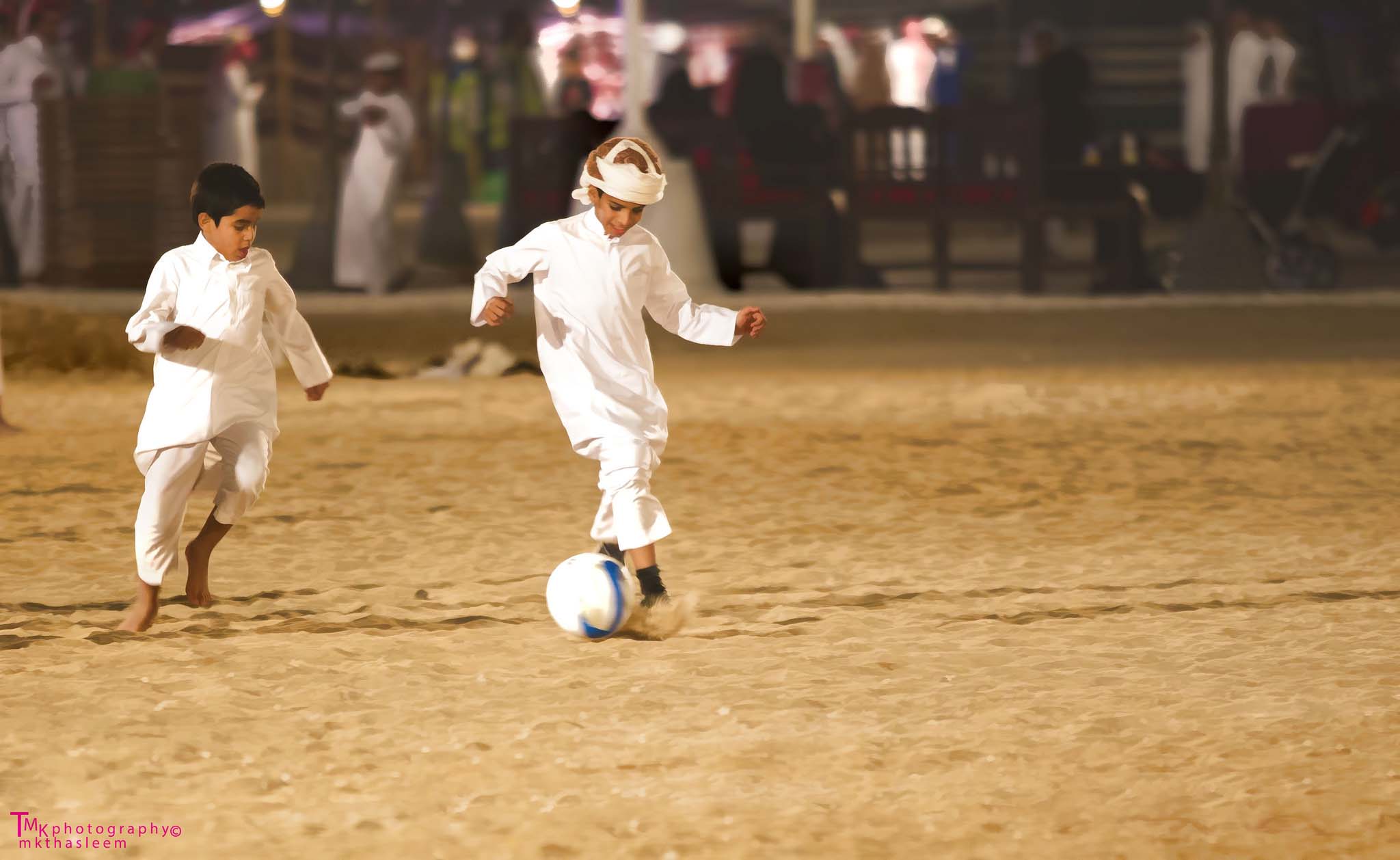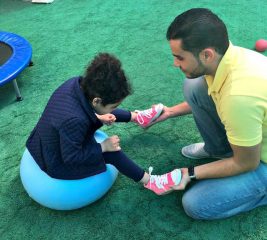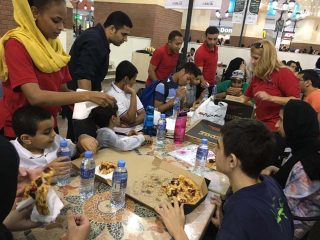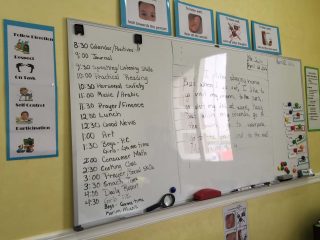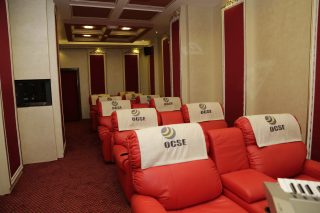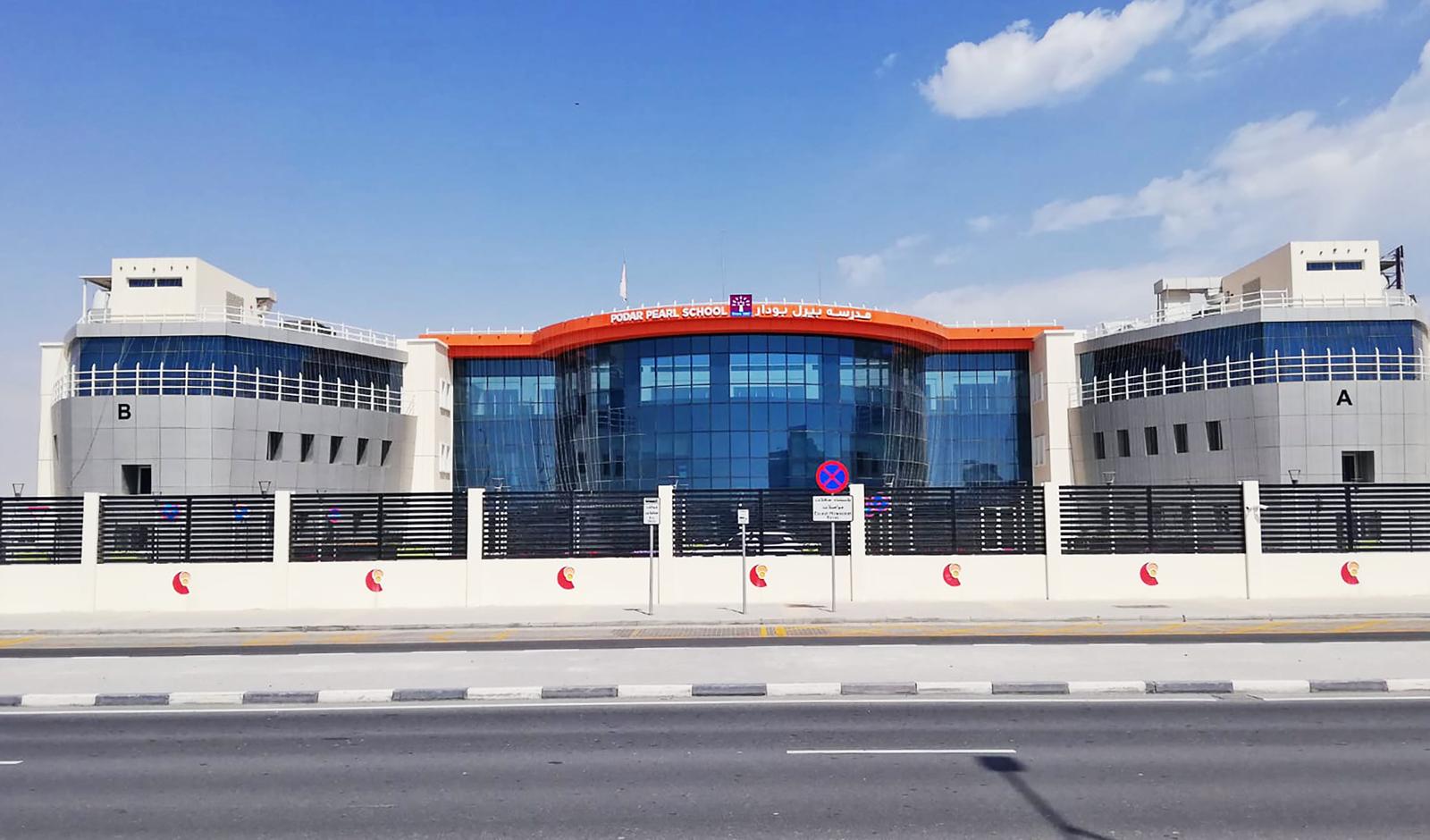When Mariam Al Rashdi’s son Karim was diagnosed with autism, it took her years to find him the appropriate support and care.
Now, the Omani mother of five has set up her own center in Qatar for children with special needs – complete with field trips to popular Doha attractions.
“It is time for a change (in society),” she told Doha News during a recent interview. “It is no longer acceptable to hide children away. Things are changing and we will be part of that.”
The Ontario Center for Special Education soft-opened in Abu Hamour in January this year, and provides programs for people ages two to 26 years old in two adjoining buildings.

The educational facility strives hard not to look clinical, and the reception areas of both buildings is reminiscent of an upscale boutique hotel with velour sofas, ornate glass coffee tables and wall details highlighted in gold paint.
There’s also a VIP-style cinema with 12 plush seats and a surround-sound system.
“We went to every movie theater and when my son screamed, we were asked to leave. I promised him that I would install our own movie theater one day – this is it,” Al Rashdi explained.
While there are a number of centers in Qatar that offer services to children with special needs, the Ontario one also hosts programs for young adults, operating like a social club.
“It was scary to think that once the child reaches 16 years, there is nothing for them – the help ends. Here, we have people come and we help them with everyday tasks,” Al Rashdi said.
Last week, one young woman who walked through the door immediately wrapped Al Rashdi in an embrace. A teenage boy accompanying her energetically high-fived the owner.
“Too hard. Be gentle, be gentle,” she replied and he did it again, much softer, and smiling.
‘Huge need’
Qatar has a number of centers that offer special education, but waiting lists at all of them are long and some such as Qatar Foundation‘s Shafallah Center are only for Qatari nationals, while others only cater to Arabic speakers.
Parents of children with special needs have spoken out in the past about the difficulties in finding the appropriate therapies and support for their children in Qatar.

Some told Doha News that other centers with long waiting lists have referred them to this new Ontario facility.
In the three months since it opened, the center has already attracted more than 50 students across its two buildings – one for children up to 12 years old and another for teens and adults.
“We haven’t advertised. I wasn’t expecting the numbers (of students) we have had already. There is a huge need for these services,” Al Rashdi said.
The center employs around 30 staff members from various countries, including the US, UK, Egypt, Tunisia and South Africa.

Students are grouped according to their intellectual abilities as well as their ages. In addition to academic activities for the more able, they have speech and language therapies, PE, art therapy and music classes.
During a recent visit to the center, four teenagers could be observed practicing writing in one room. In another room, one boy was carefully snipping paper with scissors while another was on an iPad as a “reward – (because) he did well today,” his teacher said.
A number of different programs are provided by the center, but none of them come cheap.
Students can stay from 8am to 8pm daily at a cost of QR20,000 each month, or have less intensive sessions, either from 8am to 2pm (QR15,000) or 8am to 5pm (QR17,500).
There are also early intervention sessions for younger children, that run from 8:30am until 12:30pm each day (QR12,500), and several “a la carte” type services.
Other programs
In addition to supporting students on the autism spectrum, the Ontario Center also has facilities for those with Down Syndrome, intellectual disabilities and global delay (delays in multiple areas), the center’s education director Kennesha Bracely said.
Multi-sensory rooms provide Snoezelen therapy through different lights, bubbles, music and sound which are controlled by the student through apps on tablets, to help soothe or stimulate.

Another feature is an early-intervention unit that can assist babies and young children who aren’t meeting their developmental milestones with speech and language therapy and help with motor skills, among other services.
Two-and-a-half year old Hamoudi has Down Syndrome and has been attending the center since it opened, primarily to help with his behavior.
Speaking to Doha News, his sister Buthaina said:
“There is a big difference already. He can sing songs now, he can go to crowded place and be there comfortably. He is more confident and likes to meet new people now.”
Karim’s story
Al Rashdi’s family was living in Oman when Karim was diagnosed with autism 13 years ago. He is now 16 years old.

“They didn’t know what it was about in Oman. We didn’t know what the condition was. I tried to find a center in the Middle East (to help Karim), but no one was able to help me,” she recalled.
Al Rashdi said she still finds it difficult to talk about the early years of Karim’s diagnosis, and she stifled tears as she explained the reason behind the name of the center.
“I had to sell my things and move to Canada. I called this the Ontario Center because that’s where we were when I heard my son’s voice for the first time. He was four years old and he said ‘mom’ for the first time.
When I went to Canada, they asked me what my dreams were. I said – I am willing to pay all this money (for treatment). I just want to hear the word ‘mom.’ “
Al Rashdi moved to Qatar with her family 12 years ago, and began trying to find therapies and support services here, learning and sharing tips and experiences with other families who had children with special needs.

She set up Friday sessions in her own home, discussing everything from behavior management to potty training. She also volunteered at nurseries and worked with schools to help improve their understanding of and provisions for special education.
“Setting it (the center) up took time because it needed to be very special, it needed to be perfect and I needed to get a level of experience which takes time.”
Speaking of her new center, the business owner added:
“It’s heaven, it’s my favorite place in this world. Every day there is a new child that walks and talks. All these children represent my son. I love them all.”
Building life skills
The center has a holistic approach to its students, and aims to give them skills to help them function better in everyday life.
Muslim students learn how to pray to help them better integrate in society, while all the students are coached in everyday functions such as how to brush their teeth and take a shower.
They also learn how to go grocery shopping, cook and tidy up.

“It’s about giving them some independence and dignity,” Bracely told Doha News.
As well as providing a place for the student, Al Rashdi said that there is also support for parents and family members.
“Having a child diagnosed with autism is in a way like the death of the child you expected you would have. You thought he might be a pilot or an engineer. Then you have this different child who needs you to advocate for him.
I understand what a marriage goes through, what happens to the other siblings, what happens to the extended family. I carry all that burden and pain for mothers,” she added.
Field trips
Each weekend, the center takes its students out on field trips, to Katara Cultural Village, Villaggio mall or the Pearl-Qatar, to get them used to being in perhaps unfamiliar environments – and to get other people used to seeing them and challenge pervading social stigmas around people with special needs.

Discussions are underway to have a group of the children perform musical concerts regularly at Villaggio, Al Rashdi said.
“This is very important. These children deserve a chance to be out. They have a right to be in society, to say to us ‘you have to accept me.’ ”
Thoughts?

